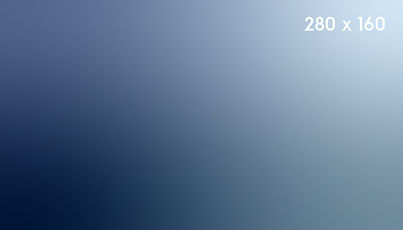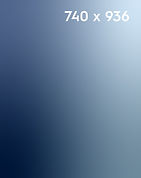Direct to
consumer

Overview
Direct-to-consumer (D2C) images are assets created specifically for native Electrolux websites. Image text is generated through the website's backend and is thus not part of the image itself. Nonetheless, it should be taken into consideration when creating/selecting the image as it may overshadow crucial parts of the image or not be easily readable.
General rules
We provide a list of general rules to follow when creating D2C images. Keep these in mind to ensure your produce images that are consistent with the Electrolux brand.
Technical specs & templates
This page provides overview of all D2C images and their technical specs. We also provide an Adobe Photohsop template that covers each asset type. The template has proper dimensions and pre-defined text layers that help you estimate where the final text will be placed. Don't forget to disable the text layers before exporting.
Navigation
You can use the list on the right to quickly jump to a specific D2C image chapter.
Go to:
D2C Banner general rules
Formats:
Art direction
-
Make sure images fit our tone of voice and are consistent with our brand identity
-
When creating special banners (e.g. Black Friday sale), be careful to match the overall Electrolux design language
Copy legibility
-
Use the attached templates to preview where the final text will be placed
-
Adjust the background image to increase legibility of the text (e.g. pick a less busy part, darken a part, blur it slightly etc.)
-
Test place the copy within pre-defined bounds to check that the composition of the image still makes the copy readable
-
Copy is not a part of the final exported image
Copy character limit
-
Please note that even though we list character limitations, they are usually recommended and not a strict rule
-
The markets do their own localization of the copy, so we do not know exactly how much text will be added on top of the images created
Cropping
-
Use the templates to preview how the final image will be cropped
-
Make sure no important parts are omitted
Webpage placement
-
Click the image on the right to check where individual assets are located on a typical webpage

Sometimes there is a need to highlight sales and promotions in a way that stands out to the user.
In this case, use the standard colour for CTA to signal clear interaction and promotion.
Hot CTAs
In the final steps of a purchase
journey, when the user is very close to finishing a purchase, we use what we call “Hot CTAs”. These are our most important calls to action and drive profitability in our eCommerce channels.
Hot CTAs are red to set them apart from other site elements and strongly
drive the user towards purchase.
Only use Hot CTAs when there is a
singular interaction you want the user
to perform to take them to the next step of a purchase journey.
Examples of these interactions can be going to an e-tailer product page, finding a physical retailer for a specific product, adding a product to the cart, or initiating checkout.
Note:
Overuse of Hot CTAs diminishes their
effectiveness. Do not apply them
together with editorial content, on home pages or across too many buttons in the same view.
iOS
R:254 G:57 B:47
#FE392F
Android
R:254 G:86 B:32
#FE5620

Promotions module
We have created a new module dedicated to highlighting ongoing promotions.
In the module it's possible to highlight both campaign (e.g. Black Friday) or one specific product on promotion.
Module elements
-
Heading above the module (e.g. "Promotions")
-
Up to four different promotions
Campaign (e.g. Black Friday)
-
Image
-
Heading
-
Body text
-
CTA
-
Promotion label
Specific product
-
Image (lifestyle or product)
-
Product information (automatically fetched)

If highlighting one specific product on promotion, editors can choose to use the automatic product image or add a lifestyle image.
The structure and module system is designed to make email content more consistent across markets, without compromising the ability to adapt the experience to local needs.
The number of modules, the order of the modules and the content featured in the modules can all be adapted.
The recommendation is always to lead with the strongest key messages, keep the email to-the-point and not too long. This means avoiding using too many modules and trying to explain everything instead of redirecting the reader to a website.

Newsletter Modules and Templates

1. Hero module – Mandatory for all emails
Setting the tone and introducing the topic for the email. Intrigue the consumers and make them curious to read more. Consists of a large image with headline and body copy followed by a large CTA.
2A. Secondary module – Optional
Like the Hero module, this module consists of a large image, but the headline and body copy are smaller. Can be used several times in the same email.
2B. 50/50 Image – Optional (Showing desktop view - responsive)
This module consists of 3 or more smaller images and text. A great way of making the email feel airier and give the consumer a good overview of the content. The CTAs for each section are text links, to not take up too much space. There is the option to include one large CTA at the end if you wish to send the consumer to the same place for all the above
information.
2B. 50/50 Image – Optional (Showing desktop view - responsive)
This module consists of 3 or more smaller images and text. A great way of making the email feel airier and give the consumer a good overview of the content. The CTAs for each section are text links, to not take up too much space. There is the option to include one large CTA at the end if you wish to send the consumer to the same place for all the above information.
2C. 2CIT (2 Column Image Text) – Optional
This module is good to use when you want to gather information on what the consumer prefer between two different options. It consists of a headline, two images, CTAs and body copy.
2D. 3CIT (3 Column Image Text) – Optional
Small images with very little text. Great for showcasing accessories and spare parts.
2E. Collage – Optional
When you need to show several aspects of a product/service, this is a great way to incorporate more images without adding more modules. Three images in different sizes combined with header and body copy. Large CTA.
3. Social Media – Optional
Great to inspire consumers by showcasing our social media feed, Instagram or Facebook. Many small images creating a good overview of the product category, or the entire brand. Depending on the content of the email.
4. Footer – Mandatory for all markets
The footer consist of icons that can be adjusted to local markets and content. It also includes links to social media and the standard brand information and legal text.
Formats
Resolution
-
Desktop: 940 x 1100 px
-
Mobile: 800 x 980 px
Copy
-
Headline: recommended character limit: 60, max: 75
-
Body: recommended character limit: 85, max: 107
-
CTA: character limit around 25
-
Corner headline: recommended character limit: 25, max: 32
Background
-
Please note that there is a slight dark gradient behind the text, so safe zone should be further up in the image

Desktop

Mobile














